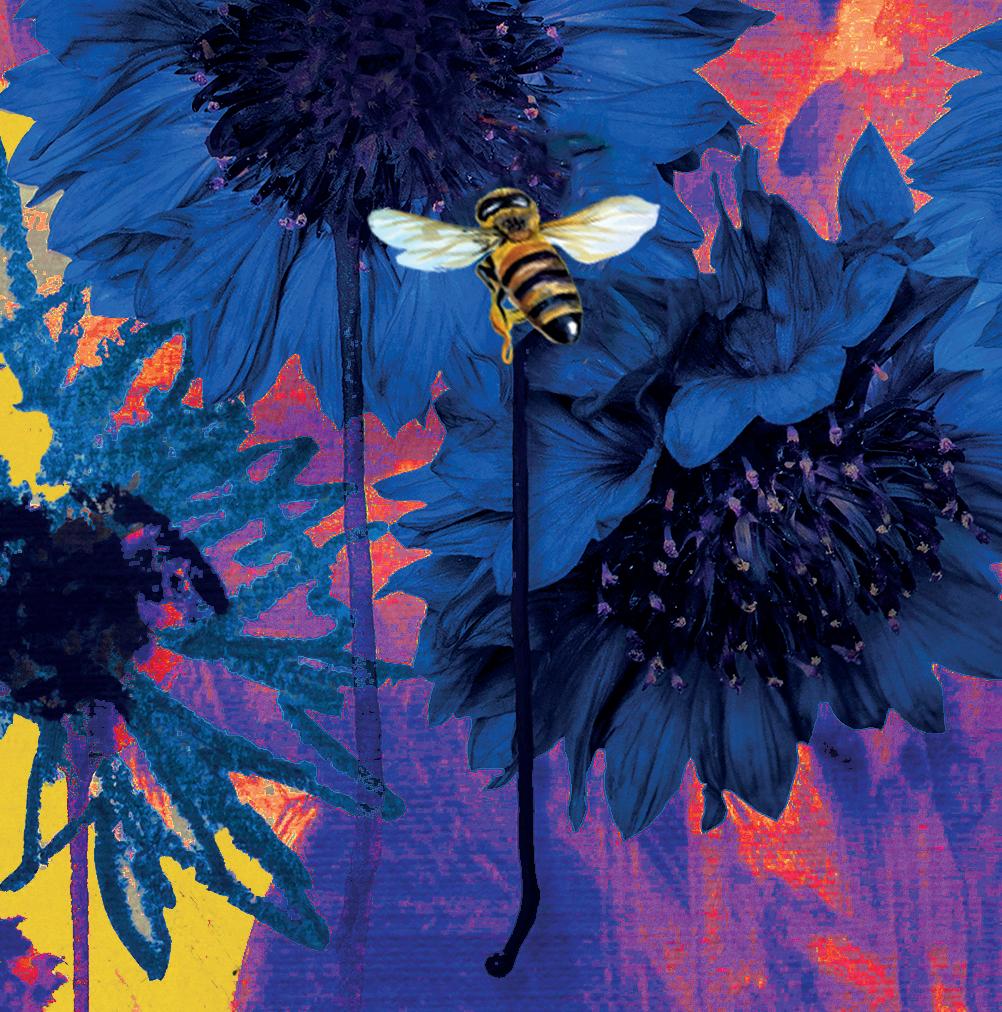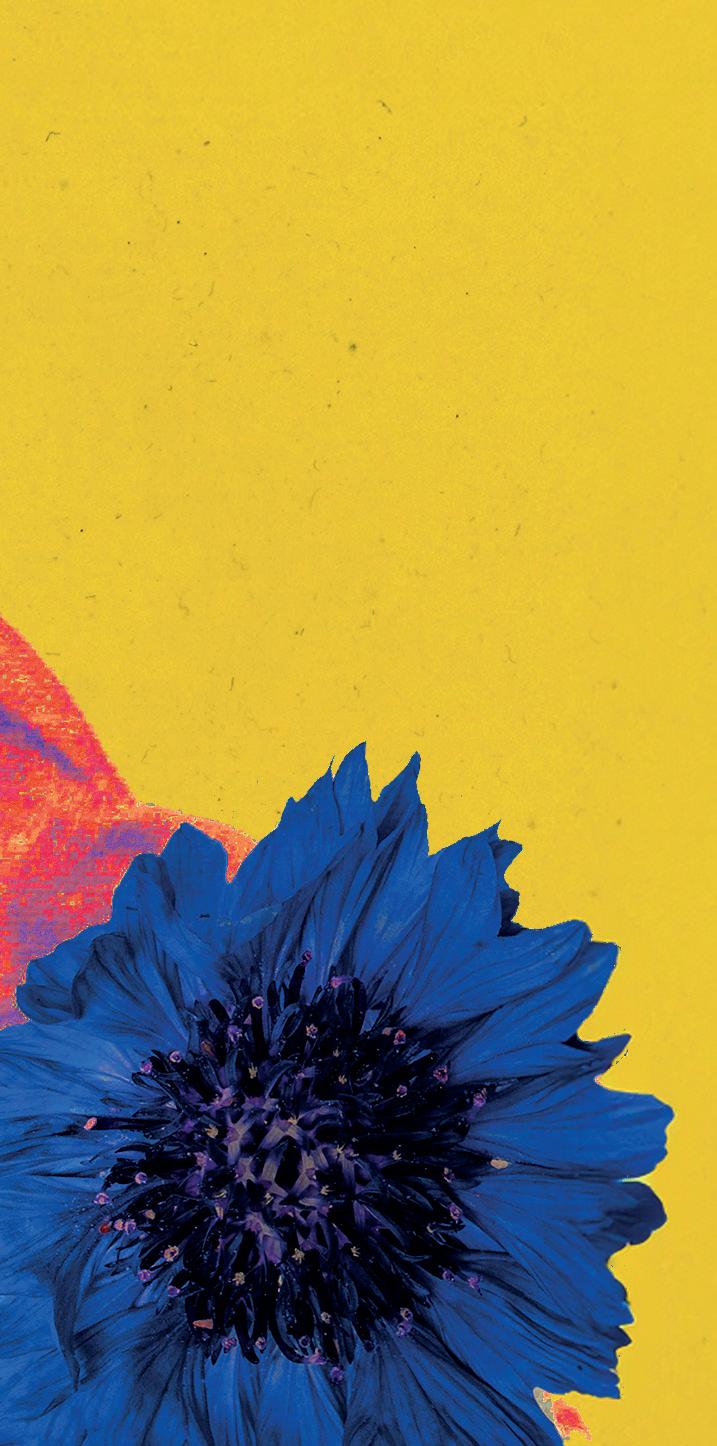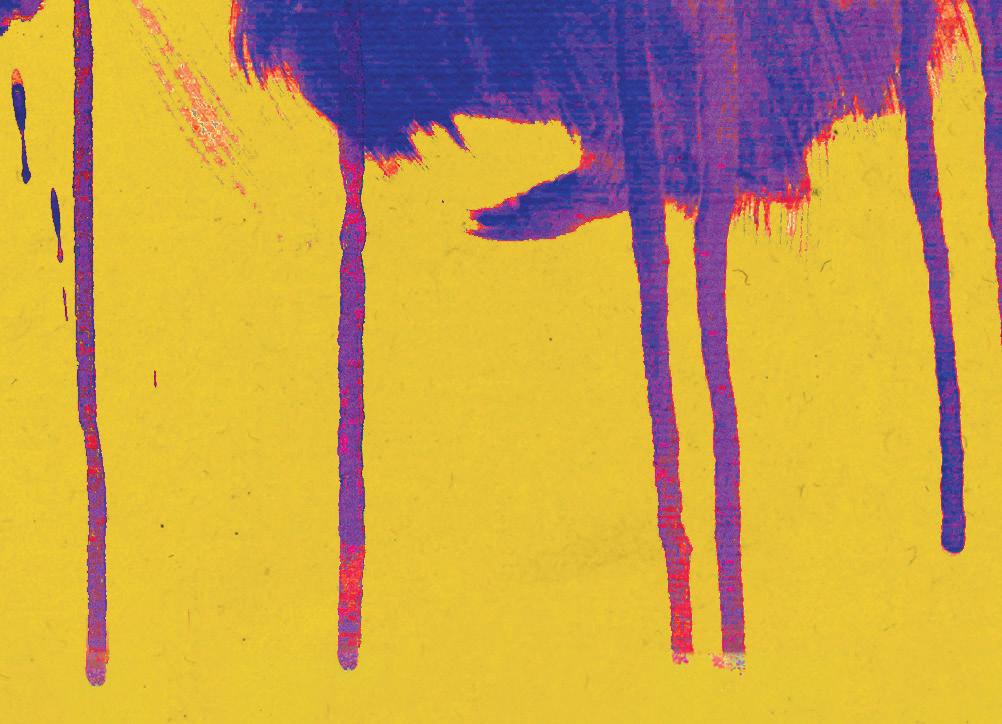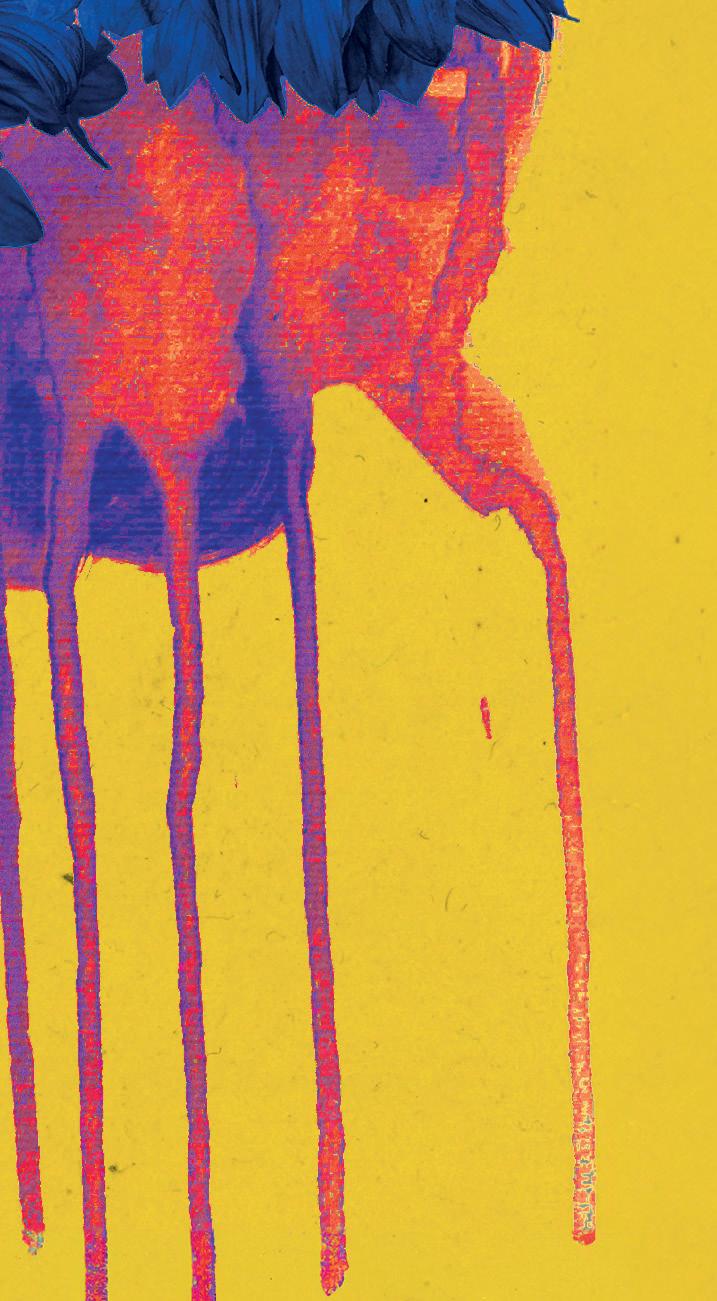








‘Extraordinary . . . this book will tug at your soul’ LIZ HYDER
‘A gentle and tender novel about the power of forgiveness’
KIRSTY CAPES


Doubleday logo - spine use
11.684 mm x 12 mm
UK | USA | Canada | Ireland | Australia
India | New Zealand | South Africa
Transworld is part of the Penguin Random House group of companies whose addresses can be found at global.penguinrandomhouse.com
Penguin Random House UK, One Embassy Gardens, 8 Viaduct Gardens, London SW11 7BW
penguin.co.uk

First published in Great Britain in 2025 by Doubleday an imprint of Transworld Publishers
1
Copyright © Caryl Lewis 2025 The moral right of the author has been asserted
This book is a work of fiction and, except in the case of historical fact, any resemblance to actual persons, living or dead, is purely coincidental.
Every effort has been made to obtain the necessary permissions with reference to copyright material, both illustrative and quoted. We apologize for any omissions in this respect and will be pleased to make the appropriate acknowledgements in any future edition.
Penguin Random House values and supports copyright. Copyright fuels creativity, encourages diverse voices, promotes freedom of expression and supports a vibrant culture. Thank you for purchasing an authorized edition of this book and for respecting intellectual property laws by not reproducing, scanning or distributing any part of it by any means without permission. You are supporting authors and enabling Penguin Random House to continue to publish books for everyone. No part of this book may be used or reproduced in any manner for the purpose of training artificial intelligence technologies or systems. In accordance with Article 4(3) of the DSM Directive 2019/790, Penguin Random House expressly reserves this work from the text and data mining exception.
Typeset in 12.75/16 pt Granjon by Falcon Oast Graphic Art Ltd. Printed and bound in Great Britain by Clays Ltd, Elcograf S.p.A.
The authorized representative in the EEA is Penguin Random House Ireland, Morrison Chambers, 32 Nassau Street, Dublin D02 YH68.
A CIP catalogue record for this book is available from the British Library
ISBN 9780857527899
Penguin Random House is committed to a sustainable future for our business, our readers and our planet. This book is made from Forest Stewardship Council® certified paper.
Let us not miss each other
A
Old Welsh Proverb
I feel tremulous, Hannah, vulnerable to the slightest tug of the wintering winds. These last few weeks, I’ve felt myself detach so much from the world that I can sense my own falling, my slow drifting to earth. All these years, I’ve indulged myself with the illusion of for ever, and still, even now, on waking or as we eat breakfast in a comfortable silence, I glimpse it, like the azure flicker of a jay’s wing through the orchard. That pretence of permanence. That necessary fickle glint of light that allows us to live on, to not be driven mad.
You know that language is leaving me, too. I look for the words my mother gave me, but they are not there, which leads me daily into abyss after abyss after abyss. The connections between words and their meaning are loosening, also, as if the map of my mind is disintegrating, yet old names and places now long gone come back to me uninvited. The strangest thing is that time itself has changed for me. The stories of all my yesterdays now show through my threadbare todays and, as we both know, I cannot possibly have many tomorrows. Perhaps I should be grateful – the only privilege, it seems, of teetering on the edge is feeling for the first time free from time. The words I collected for my books have gone now, their work with me done. The relentlessness with which they plagued me, preoccupied me, the
way they kept me awake and cluttered my mind. It was as if they pursued me and, having consumed me, they left me spent, ashen. Tonight, as I sit here, surrounded by the books that I have written, the room seems to ring with their permanence, their rectangular spines like gravestones, yet I hear nothing. And what happened to our own language, Hannah? Those first glances, the stumbling sentences that turned to wordless touches. Your hand appearing in mine as we walked, our footsteps falling in sync. Half a century of reading each other, of nods and tacit understanding; of hot stinging words, and midnight silences in which I lay watching your unsleeping shape, unable to reach out and touch your shoulder. It is all slipping from my grasp.
It is quiet tonight, in the way that only autumn can be, and the tawny owls are calling across BerllanDeg. I have sat here awhile in the moonlight, feeling the now rational fear of this cooling body. You will chastise me tomorrow; I know you will. You will look at my sullen eyes and say I should rest, but every time I lay down my head, I am visited by face after face of people long gone, rising in the darkness.
Forgive me, Hannah, for all the ways that I failed you. I could not have loved you more . . .
Hannahwalked through the old trees, her face waxen, her arms aching with work and grief and sleeplessness. She pulled her cardigan around her as the long, dew-silvered grasses dragged at her shoes, the last windfalls slippery underfoot. The house had been full since he died, the old Welsh way of not letting grief sit alone. There had been teacups and saucers to take down from the dresser, chairs to push back against the edges of the parlour. There had been the receiving of neighbours, friends, eager to see her before the funeral so that their private condolences would not have to be given in public. Every morning a slew of new cards, adorned with black crosses, to place on the mantelpiece. Hannah felt the dampness clinging to her skin. No one would call tonight and for that, at least, she was grateful. She felt herself breathe for the first time in a week.
In the end, it had been a protracted farewell. A loss of appetite, and she had tried to cajole him, prepare the foods his mother used to make for him as a child. Sunken cheeks. Eyes. His skin had whitened; his hair seemed almost bleached. She had not been prepared for how beautiful he would look – a shell, an angular form – and she did not leave his side. She took to sleeping in a chair beside him, kissing his cheekbone and touching him semi-awake when he seemed troubled. And at the end, something else she had not been
expecting. She had always imagined death as a slipping away, a letting go of life, but it wasn’t. Death was more purposeful than that; it was a leaving, a going somewhere else. She had recognized it in the last look in his eyes, the final shudder and the single tear that had rolled down his cheek. He had left her.
Tonight, she had eaten alone, pushed the table up against the wall and placed the food in her mouth though she felt no hunger for it. She had listened, too, to the profound silence. The feet-thick walls of the old house deadened most sound from the outside, and the books which lined them muffled it even more, but the quality of sound was now different. Her knife and fork had clattered on the plate as she suddenly remembered something she ought to have already done. She placed her hands on the table and pushed her weight from the chair, took off her apron and walked up the old cream-painted stairs to the half-landing. There, she opened the linen press and looked at the fabrics folded inside it. She ran her fingers over them for a moment. Some darned in patches by her mother. Blankets and tablecloths from her ‘bottom drawer’, kept for best and unused; tapestry bedspreads, each one an ache for a past warmth. She found what she wanted and folded it over the crook of her arm.
She had tied his mouth closed with a strip of cloth to stop his jaw gaping, just as she had seen her own mother do when her father died. It had been one of the things she remembered about that time, standing in the doorway watching as her mother, her hands trembling, did her duty. The old firm of undertakers from the village
had come to do the rest, had been respectful and kind; a professional ease with the bureaucracy of death.
And now, once more, a man was laid out in the parlour, ready for the service in the morning, his hair combed.
As Hannah walked through the trees, she took in their trunks which glistened in the dampness, their branches thin and painfully bare. They would usually be washed at this time of year, cleansed and put to rest. She would normally do it herself, tie her hair in a scarf and scrub at their skeletal frames, their familiar trunks and limbs, wondering all the while how life could ever return to them. Tonight, they stood sentinel, their branches feeling for a breeze.
She turned a corner, the material heavy on her arm, and looked through the gloaming towards the hives. His hives. There was no movement. The bees would be in their winter cluster now, turning inwards, preserving themselves. Hannah approached them and listened to the silence a moment before unfolding the black silk and laying it gently over them, the silk rasping slightly against the roughness of the wood and gleaming crow-black in the darkness.
She must tell the bees that he had died. That much she knew. She had seen it done but had no eldest son to do it, as was tradition. She rummaged for the old iron door key that she had slipped into her pocket on her way out of the house. It lay cold in her palm, and she felt its weight in her fingers as she placed it at the door of the hive – a sign that their owner had crossed another threshold. She tried to think of something to say, but
she could not find the words so she stood a moment, her hands clasped, her cheeks aching from the polite serenity she had feigned for the past week. There would be so many people tomorrow, just as there had been all this week. She knew the day would pass in the receiving of sympathies she would not remember, the starched whiteness of lilies and the steam on the vestry window as everyone took tea afterwards, but tonight there was nothing. The stillness she had thus far kept at bay seemed to be growing around her, its purity devastating. She turned to look back through the orchard, at the house where he lay, the hives silent behind her, and thought for a moment of the innumerable seasons they had survived here, the falling blossom turning to fruit, the falling fruit rooting and turning to blossom. This winter would be different. She could feel it in the bitter wind, in an unanswered call, and in the impossibility of his silence.
Hannahhadn’t slept; she had lain awake in the room above the parlour. At dawn, she pulled herself to sitting, pushed back the blanket and let her feet drop to the floor. She walked across the floorboards towards the low window. This morning there was an opaque early mist punctuated only by scarlet-skinned apples among the fallen leaves. For a moment she recalled how she used to sit in her father’s lap, listening wide-eyed as he whispered stories of how apples had followed the pilgrims across Europe from east to west, how on a stormy night a ship had been wrecked on the West Wales coast, splitting open barrels of apples which came ashore and rooted themselves along the coastline. Now the orchard remained stubbornly shrouded and she turned and made her way down the stairs, her fingers finding their way along the banister as they had done for well over half a century.
It was dark inside the house this morning, the only light diffusing into the kitchen coming from the warm lamp which she’d left on in the parlour to keep him company. She moved to the stove and made some tea, then carried it over to the table. As she sat, she pressed her palms on to the surface, felt the grain of the wood. Her father had felled the pear tree, had told her the story a thousand times. How rare it was to find a pear tree with wood straight enough, how old the tree must have been to yield so much to work with. You planted
pears for your heirs, their slow growth making their cultivation a small hope for the future. She traced the patterns of the knots, the fingerprint of the orchard. At first when her mother scoured the wood, it had marked, but over time, each blemish had seemed to bleed into another, and the wood had hardened to a deep shine.
She turned her head for a moment, the silence disturbed by the sound of a startled blackbird and some familiar footsteps. She heard them pause at the door and her jaw tightened. She could sense her there, standing on the slate doorstep worn from a thousand comings and goings, wondering whether to knock. She didn’t.
Hannah kept her eyes on the table as a draught reached her and her sister walked in.
‘Hannah?’
Hannah listened as she closed the door behind her, her breathing in disarray after having walked from the road.
‘I came as quickly as I could,’ she said, her Welsh a little stilted. ‘I was away or I would have come sooner.’
Hannah considered her voice. Although her accent had softened from years of living in the city, her voice still contained the same childlike apprehension, a certain defensiveness.
Hannah waited as her sister took her in, suddenly self-conscious at being caught in her nightdress, her hand going to her unbrushed hair.
‘Sit. I’ll make you some tea,’ Hannah said, still not having looked directly at her.
Hannah retreated over the uneven flagstones and waited for the kettle to boil. She stood with her back
towards Sadie, feeling the strange, stubborn familiarity of her sister’s nearness. Hannah was six years older than Sadie, and today she could feel each one of her seventy years in her body. Was aware, from the fit of her clothes, that her frame had shrunk a little lately. Where Hannah had been tall, fair, Sadie had always been dark-haired and strong.
‘Do you still take sugar?’ Hannah caught Sadie unawares.
‘Yes . . .’ Sadie cleared her throat. ‘Yes.’
Sadie took the tea, and the sisters sat down. They had not sat together like this for years, and Sadie considered how the house itself seemed outside time, their childhood and their present existing simultaneously here around the table. The kitchen was still as their mother had kept it – plates on racks, a settle on one side of the table, an old television covered with a cloth, and china dogs on the mantelpiece on either side of an old slate clock. Sadie sat watching the steam curling up from their cups, feeling a sudden grief of her own, a pang of emptiness and longing that had something to do with how much Hannah was beginning to look like their mother.
‘It’s like nothing’s changed,’ said Sadie quietly.
She regretted her words immediately.
‘I mean, in the house, the orchard . . .’ she continued.
‘Everything’s changed,’ countered Hannah.
‘Of course.’ Sadie bowed her head.
‘Hannah, I’m sorry,’ she said eventually.
‘You don’t have to say that,’ answered Hannah, her eyes flitting away.
‘I’m sorry he’s gone.’ Sadie tried to find Hannah’s gaze. ‘And I’m sorry I wasn’t here to help you.’
‘You live too far away; it’s to be expected.’
Sadie could feel the curtness in her sister’s voice, watched as she picked some down off her nightdress impatiently and flicked it away.
‘Who’s taking the service?’ Sadie asked quietly.
‘Evans.’
Sadie nodded.
‘There’ll be a short service here before . . .’
‘He’s still here?’ exclaimed Sadie, her eyes darting to the half-open door to the parlour. ‘I didn’t realize . . .’
‘Of course he’s still here,’ chided Hannah.
Sadie felt a stab of guilt at the thought of her sister here alone with him all night.
‘The women from the chapel are insisting on making tea in the vestry after the service,’ Hannah said.
‘He would’ve liked that.’
‘It’ll be something for them to do, I suppose,’ replied Hannah tartly.
It was getting lighter now, although the winter sun barely illuminated the room. Sadie reached for something to say but her mind seemed to falter.
‘I’d better get changed; everyone will be here soon,’ Hannah said, standing up abruptly.
Sadie noticed that her tea was untouched.
‘I won’t be long,’ Hannah said before walking to the stairs, leaving Sadie by the table alone.
They shouldered him through the orchard past the shrouded hives, as he had requested. Hannah knew
that he was not heavy now, but the ease with which the men with patent shoes carried him was painful; the weight and space he had taken up in her life so seemingly insignificant. Hannah followed on foot towards the hearse, her eyes fixed on the coffin, a white handkerchief pressed into her palm. She found herself turning inwards, barely aware of her sister by her side.
The chapel stood alone next to the road a few miles from Berllan-Deg, its iron gates flaking. It was big enough to accommodate both those invited and those whose relationship with Hannah’s husband had been more casual, to sit in the gallery above. Hannah always thought that Welsh funerals were cruel: their public nature, the way some villagers relished attending each one, however casual the acquaintance. The parading of grief. Sadie used always to insist that grief was collective; it could not be extricated or kept to yourself. It was no good trying to control it to suit your own convenience.
Today the winter light streamed in through the jewelled tones of the windows, the over-painted walls growing damp from the heat of the congregation. Hannah followed the coffin inside, keeping her eyes on the trembling flowers on its lid as it was moved. She could hear the muffled hymns as if through her body more than her mind, the collective breaths, the subdued pedal organ. There were Welsh hymns from their childhood; some unfamiliar English ones, too, which she had trusted the minister to choose, as there were staff here from the library, and some from his days at the university. She was sure the eulogies were respectful, but she
struggled to comprehend the words as they dissipated into the cavernous space.
Her mind turned to the day they married, how they had stood here in the same place under the pulpit. The thin dress she had worn, his dark-blue suit a little too big. The trembling deep down inside her, the cold, the nervousness. The way he hadn’t shaved as he had been up all night, the neighbourhood boys firing shots into the dark, felling trees on to the road, trying to stop him arriving at the chapel. The way the village children had placed a rope across the road, so she had to pay to pass.
A performance, rituals representing the obstacles that they would have to endure. She remembered the lunch they had had in the hotel in the village, and how he had held court during the speeches, the muffled laughter.
Now the last hymn had been sung and Hannah became aware once again of the silence. The minister invited everyone to the vestry afterwards for refreshments, and then it was time, time to follow him once more down the aisle. The cold air made her gasp as she emerged behind him. There was a short service by the graveside, a few more prayers, and then the mourners filed past her with damp handshakes and whispered condolences, until she was left alone with Sadie. The gravediggers in their mud-covered denim were smoking on the other side of the chapel out of respect. Hannah turned back towards the grave one last time before walking the thin path to the vestry.
The chapel women were in their element; aprons over black blouses, they bustled around the serving hatch, pouring tea from aluminium teapots polished
like pennies. Groups of men put the world to rights, their ties slackened a little by now. Hannah sat with Sadie, but she could not find a place for her grief among the thinly sliced brown bread, the caraway cake and the laughter. She drank some tea, then slipped the envelope containing what she owed the chapel for the provisions to Sadie, to pass on discreetly.
It was getting late when they arrived home. Hannah closed the door behind her and began to clear the morning’s teacups. One of them slid on its saucer, rattling loudly, and Hannah suddenly seemed unsteady. Sadie reached out and held her arm tightly as Hannah righted herself. They stood for a moment in stillness.
‘I’m all right,’ she said eventually, shaking off Sadie’s hand.
‘Sit down. I’ll do that,’ answered Sadie, taking the cup from her hand. She tried not to look as Hannah took a seat, her face pale against the harsh darkness of her blouse.
‘I’ll stay for a week or two,’ Sadie said as she filled the old sink to wash the dishes.
Hannah didn’t reply.
‘If that’s all right?’
Afterwards, Sadie made more tea, stirred some sugar into it, and they sat once again in silence. As darkness fell, Hannah looked over at the parlour. The door had been left open, the furniture still pushed back. An empty space at the heart of the house.
Hannahwasn’t eating or sleeping properly. Sadie had been watching her for the past few days; she had done nothing but pace around the house tidying away John’s possessions, and if she rested at all, her unease would be evident in the way she would sit on the edge of the seat as if ready to get up at any moment. Sadie could hear her upstairs making a start on sorting his clothes, pulling them from the old wardrobe and packing them into boxes. This was what Hannah would do; when anything significant happened to her, she would disappear into herself, revert to doing the right thing, doing her duty, as best she could.
Sadie found herself on her own in the house for long periods of time and felt both strangely at home and completely disorientated. She did not think she had ever felt as if she had fully inhabited the place. As a child, her stations around the house had been confined to its edges. She would sit on the landing, where she would overhear hushed conversations, or hide on the wide window seats, where she would often draw the curtains and observe life through the crack. The vast age difference between her and Hannah had for the most part characterized their relationship, their interests, their understanding, but there had also been a few golden years when they had come together; those early teenage years when Hannah had been afraid enough of her own burgeoning body to humour her young sister
and retreat into the freedom of childhood. For one glorious summer or two, the orchard had sung with magic and infinite possibilities.
Hannah had always felt more at home in the orchard; it was as if you could not tell where the orchard ended and Hannah began. In those days they would climb trees, eat apples until they were sick. Hannah would hang a rope from tree to tree and fold an old bedsheet over it, take a lamp inside and act out shadowy plays until Sadie cried with laughter. She would imitate the adults who came to visit – their mannerisms, their speech – and tell Sadie to do the same because she knew that, being younger, her sister would not get into trouble in the same way she would. In the autumn, they would light fires under the peerless skies, talk about how Hannah was destined to become an actress and how Sadie would be a journalist, that she would have her own newspaper and write about the films her sister was in. But as Hannah grew into a young woman, their mother had started to chide her for being too loud, and some of the village boys would sit on the old stone bridge and shout things at her blossoming beauty as she walked home from school. Hannah would stay in her room more, leaving Sadie to play alone. Sadie only loved the orchard if Hannah was there, and by the time Sadie grew into herself, Berllan-Deg had begun to feel claustrophobic, lonely.
She had not come to see Hannah and John often after she left Berllan-Deg, but the house certainly felt different without his presence. Sadie opened the curtains and looked out at the spot where she had first seen him. She